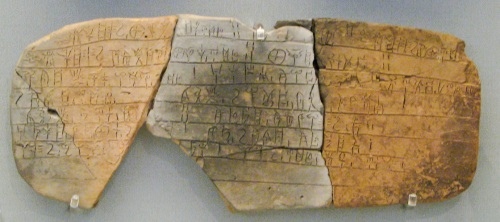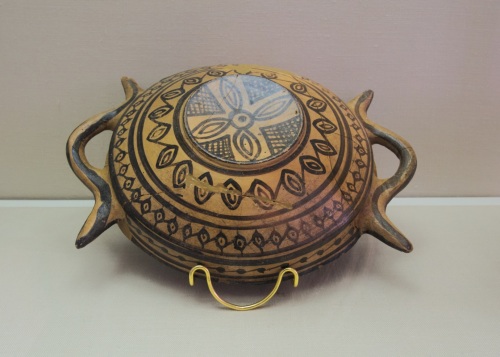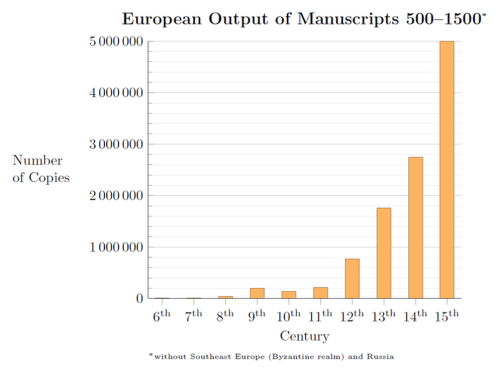“Today the West faces challenges without and threats within. But no greater threat exists than that which comes from people inside the West intent on pulling apart the fabric of our societies, piece by piece. By assaulting the majority populations in these countries. By saying that our histories are entirely reprehensible and have nothing good to be said about them. By claiming that everything in our past that has led up to our present is irredeemably riddled with sin and that while these same sins have beset every society in history, the debtor should knock at only one door. And most importantly by those who pretend that a civilization that has given more to the world in knowledge, understanding, and culture than any other in history somehow has nothing whatsoever to be said for it.”
― Douglas Murray, The War on the West
Tag Archives: western civilisation
Douglas Murray on the West
Filed under Quotations
Douglas Murray on the destruction of the past
“This is the process by which everything from the past can be picked over, picked apart, and eventually destroyed. It can find no way of building. It can only find a way of endlessly pulling apart. So a novel by Jane Austen is taken apart until a delicate work of fiction is turned instead into nothing more than another piece of guilty residue from a discredited civilization. What has been achieved in this? Nothing but a process of destruction.”
― Douglas Murray, The War on the West
Filed under Reblogs
Douglas Murray on truth
Douglas Murray (born 16 July 1979) is a British author and political commentator. He founded the Centre for Social Cohesion in 2007, which became part of the Henry Jackson Society, where he was associate director from 2011 to 2018. He is currently an associate editor of the conservative-leaning British political and cultural magazine The Spectator.
“what has been worked away at in recent years has been a project in which verifiable truth is cast out. In its place comes that great Oprah-ism: “my truth.” The idea that I have “my truth” and you have yours makes the very idea of objective truth redundant. It says that a thing becomes so because I feel it to be so or say that it is so. At its most extreme, it is a reversion to a form of magical thinking. Precisely the thinking that the Enlightenment thinkers chased out. And perhaps that is why the Enlightenment thinkers have become such a focus for assault. Because the system they set up is antithetical to the system that is being constructed today: a system entirely opposed to the idea of rationalism and objective truth; a system dedicated to sweeping away everyone from the past as well as the present who does not bow down to the great god of the present: “me.”
― Douglas Murray, The War on the West
Filed under Reblogs
Peter Baldwin on the Regressive Left
‘I think of regressive leftism as a mind virus, a paralytic disease that is severely inhibiting the ability of Western societies to properly debate some of the most important issues they face. It is suffused with civilisational self-loathing — severely condemnatory of “white” post-Enlightenment Western societies yet prepared to overlook or apologise for the most egregious defects in other kinds of society.’
…
‘I believe the time has come for a fundamental rethinking of the lines of political division. At this historical juncture decent leftists must drop the masochistic obsession with denigrating post-Enlightenment Western civilisation and join with liberals, conservatives and others in a concerted effort to defend it against the unprecedented threats it now faces.’
Peter Baldwin was a minister in the Hawke and Keating Labor governments.
From ‘Regressive Left puts bigotry and militant Islam on a pedestal’, The Weekend Australian, 17 September 2016.
Filed under Quotations
The Dark Ages
by Tim Harding
(An edited version of this essay was published in The Skeptic magazine,
March 2016, Vol 35, No. 1, under the title ‘In the Dark’).
Like other skeptics, I often despair at the apparent decline in the public understanding of science. Anti-science, pseudoscience, quackery, conspiracy theories and the general distrust of experts seem to be on the rise. I sometimes even wonder whether we in danger of regressing into a new dark age.
So what do we mean by a ‘dark age’? Was there really a dark age in post-Roman Europe? If so, what were its most likely causes? These questions are difficult to answer, and not just because of disagreements among historians. The difficulty is in some ways circular – we call the post-Roman period a ‘dark age’ because we don’t know enough about it (relative to the periods before and after); and we don’t know enough about it because not much was written down at the time.
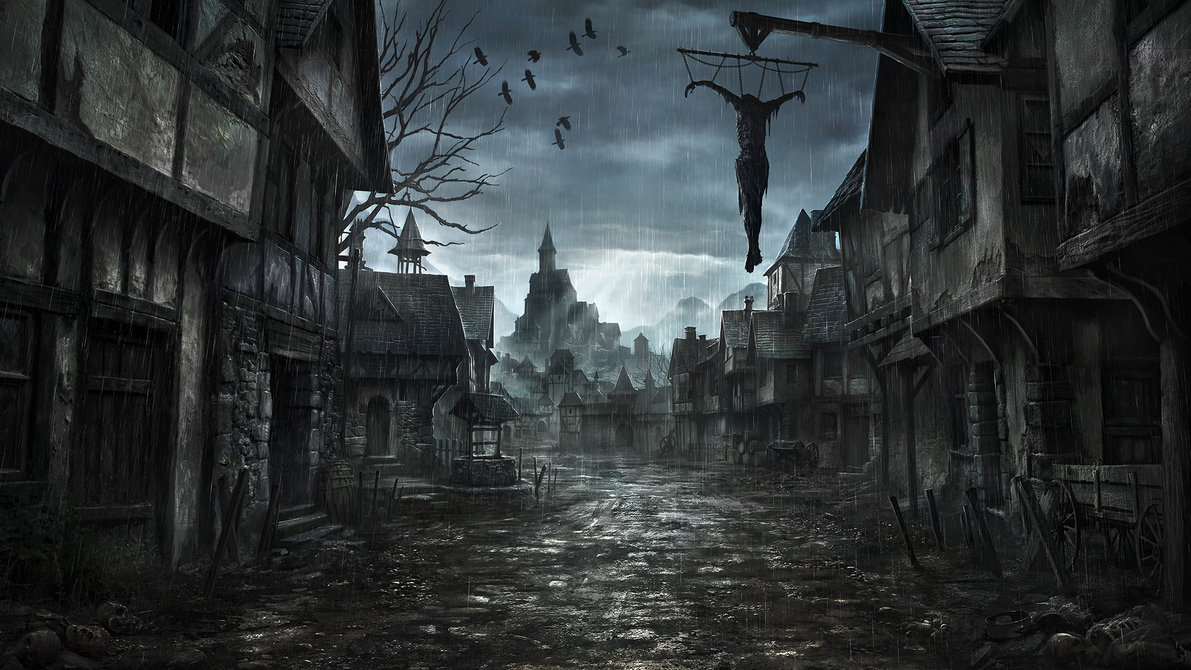 My own observation is that western civilisation has already suffered two dark ages about 1300 years apart. (There was an earlier dark age in Ancient Greece from around 1100 to 800 BCE). If this ‘trend’ is repeated we should be due for another one in a couple of hundred years’ time.
My own observation is that western civilisation has already suffered two dark ages about 1300 years apart. (There was an earlier dark age in Ancient Greece from around 1100 to 800 BCE). If this ‘trend’ is repeated we should be due for another one in a couple of hundred years’ time.
The term ‘Dark Ages’ commonly refers to the Early Middle Ages, which was the period of European history lasting from the 5th century to approximately 1000 CE. The Early Middle Ages followed the decline of the Western Roman Empire and preceded the Central Middle Ages (c. 1001–1300 CE) and the Late Middle Ages (1300-1500CE). The period saw a continuation of downward trends begun during late classical antiquity, including population decline, especially in urban centres, a decline of trade, and increased translocation of peoples. There is a relative paucity of scientific, literary, artistic and cultural output from this time, especially in Western Europe.
Historians suggest that there were several causes of this decline, including the rise of Christianity. The other causes are often overlooked, especially by antitheists trying to score points such as ‘look what happened when your mob was in charge!’. So like good skeptics, let’s examine the historical evidence.
The Greek Dark Age
The first European dark age occurred in ancient Greece from around 1100 to 800 BCE. The archaeological evidence shows a collapse of the Mycenaean Greek civilization at the outset of this period, as their great palaces and cities were destroyed or abandoned and vital trade links were lost. Unfortunately, their Linear B script also disappeared, leaving us with no written accounts of what really happened or why.
Linear B script. Source: Wikimedia Commons
Legend has it that Greece was invaded by the mysterious Dorians from the north and/or the Sea Peoples of uncertain origin but possibly from the Black Sea area. The archeological evidence is of little help to us other than showing a simpler geometrical style of pottery art than that of the Mycenaeans, hinting at occupation by a different culture.
Geometric (9th-7th century BCE) pottery from Melos in Greece. Source: Wikimedia Commons
There is archeological evidence of a revival of Greek trade at the beginning of the 8th century BCE, coupled with the appearance of a new Greek alphabet system adapted from the Phoenicians which is still in use today. This led to creation of western civilisation’s oldest extant literary works, such as Homer’s The Odyssey and The Iliad. From succeeding centuries we have been bequeathed major texts of ancient Greek drama, history, philosophy and science.
The decline of the Roman Empire
The Roman Empire reached its greatest territorial extent during the 2nd century CE, reaching from Babylonia in the East to Spain in the West, Britain and the Netherlands in the North, to Egypt and North Africa in the South. The following two centuries witnessed the slow decline of Roman control over its outlying territories. The Emperor Diocletian split the empire into separately administered eastern and western halves in 286CE. In 330CE, after a period of civil war, Constantine the Great refounded the city of Byzantium as the newly renamed eastern capital, Constantinople.
During the period from 150 to 400CE, the population of the Roman Empire is estimated to have fallen from 65 million to 50 million, a decline of more than 20 percent. Some have connected this to the Dark Ages Cold Period (300–700CE), when there was a decrease in global temperatures which impaired agricultural yields.
In 400CE, the Visigoths invaded the Western Roman Empire and, although briefly forced back from Italy, in 410CE they sacked the city of Rome. The Vandals again sacked Rome in 455CE. The deposition of the last emperor of the west, Romulus Augustus, in 476CE has traditionally marked the end of the Western Roman Empire. The Eastern Roman Empire, often referred to as the Byzantine Empire after the fall of its western counterpart, had little ability to assert control over the lost western territories. Although the movements of peoples during this period are usually described as ‘invasions’, they were not just military expeditions but migrations of entire peoples into the empire. These were mainly rural Germanic peoples who knew little of cities, writing or money. Administrative, educational and military infrastructure quickly vanished, leading to the collapse of the schools and to a rise of illiteracy even among the leadership.
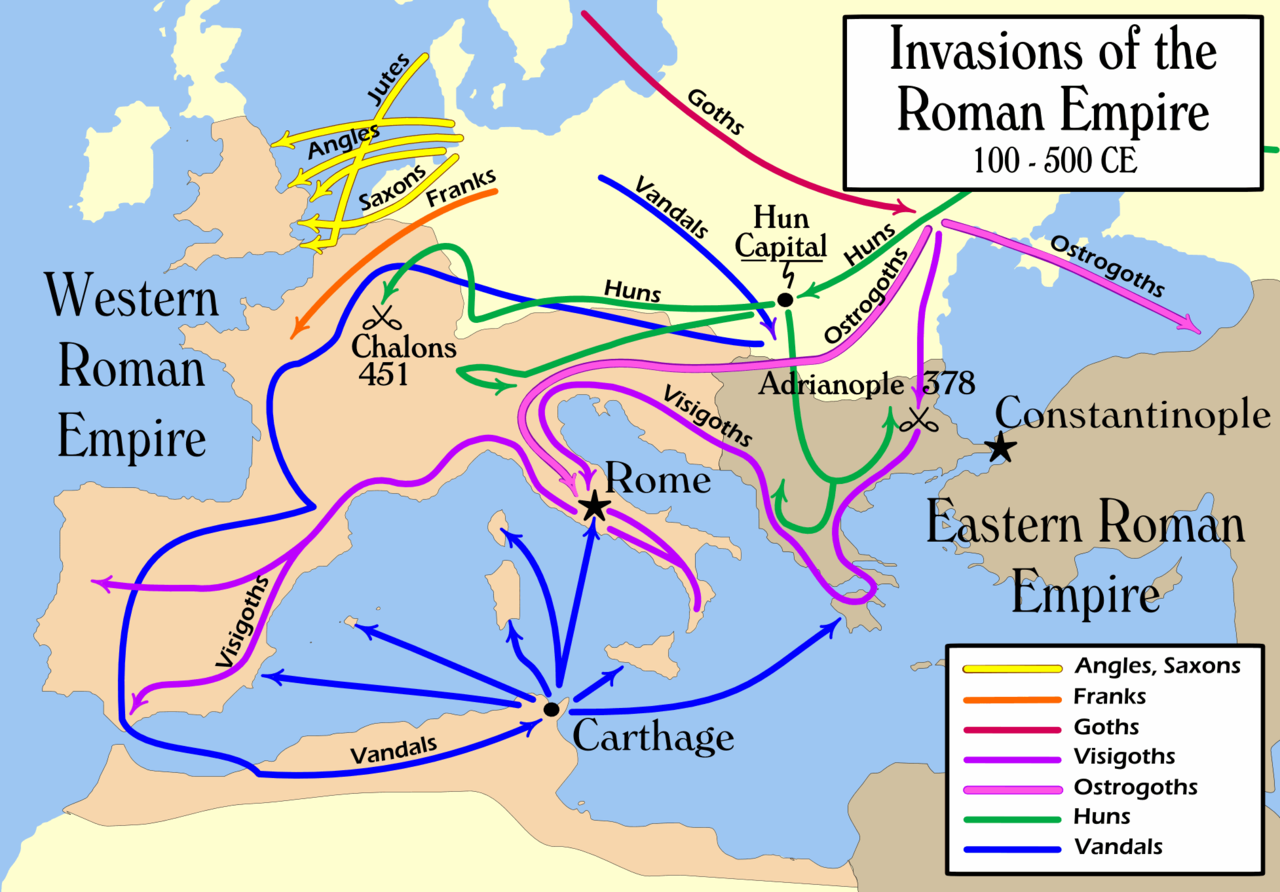
For the formerly Roman area, there was another 20 percent decline in population between 400 and 600CE, or a one-third decline between 150-600CE which had significant economic consequences. To make matters worse, the Plague of Justinian (541–542CE), which has since been found to have been bubonic plague, recurred periodically for 150 years – killing as many as 50 million people in Europe. The population of the city of Rome itself declined from about 450,000 in 100CE to only 20,000 during the Early Middle Ages. The city of London was largely abandoned.
In the 8th century, the volume of trade reached its lowest level, indicated by very small number of shipwrecks found in the western Mediterranean sea.
One of the main consequences of the fall of Rome was breakdown of the strict Roman law and order, resulting amongst other things in the running away of slaves who had performed most of the labour. Less food and fibre was produced on farms, resulting in people leaving the cities to less efficiently grow their own. Lower agricultural activity resulted in reforestation, or in other words the forests naturally grew back. Travel and trade by land became less safe, exacerbating the economic decline.
The role of the Christians
The Catholic Church was the only centralized institution to survive the fall of the Western Roman Empire intact. It was the sole unifying cultural influence in Western Europe, preserving Latin learning, maintaining the art of writing, and preserving a centralized administration through its network of bishops ordained in succession. The Early Middle Ages are characterized by the control of urban areas by bishops and wider territorial control exercised by dukes and counts. The later rise of urban communes marked the beginning of the Central Middle Ages.
During the Early Middle Ages, the divide between eastern and western Christianity widened, paving the way for the East-West Schism in the 11th century. In the West, the power of the Bishop of Rome expanded. In 607CE, Boniface III became the first Bishop of Rome to use the title Pope. Pope Gregory the Great used his office as a temporal power, expanded Rome’s missionary efforts to the British Isles, and laid the foundations for the expansion of monastic orders.
The institutional structure of Christianity in the west during this period is different from what it would become later in the Central Middle Ages. As opposed to the later church, the church of the Early Middle Ages consisted primarily of the monasteries. In addition, the papacy was relatively weak, and its power was mostly confined to central Italy. Religious orders wouldn’t proliferate until the Central Middle Ages. For the typical Christian at this time, religious participation was largely confined to occasionally receiving mass from wandering monks. Few would be lucky enough to receive this as often as once a month. By the end of the Dark Ages, individual practice of religion was becoming more common, as monasteries started to transform into something approximating modern churches, where some monks might even give occasional sermons. Thus the evidence for powerful centralised Christian control during the Dark Ages is lacking.
The Western European Dark Age
The concept of a Western European Dark Age originated with the Italian scholar Petrarch in the 1330s CE. Petrarch regarded the post-Roman centuries as ‘dark’ compared to the light of classical antiquity. The Protestant reformers of the 16th century had an interest in disparaging the ‘Dark Ages’ as an era of Catholic control, when they (the Protestants) thought that Christianity had ‘gone off the rails’. Later historians expanded the term to refer to the transitional period between Roman times and the Central Middle Ages (c. 11th–13th century), although in the 20th century the Dark Ages were contracted back to the Early Middle Ages (500-1000CE) again. I shall refer to this period in western Europe as ‘the Dark Ages’ from here on.
Evidence for the Dark Ages include the lack of output of manuscripts (both originals and copies), a lack of contemporary written history, general population decline, a paucity of inventions, a lack of sea trade, restricted building activity and limited material cultural achievements in general.
The lack of manuscripts in the Dark Ages compared to later Middle Ages is illustrated by the following graph.
The Romans were remarkable innovators. Their inventions of materials included kiln-fired bricks, cement, concrete, wood veneer, cast iron, glassware and surgical instruments. In construction, they invented paved roads, bridges, tunnels, aqueducts, arches, domes, dams, water supply, drainage, sewerage and even underfloor heating. Their production technology included the wheeled plow, the two-field crop system, harvesting machines, paddlewheel mills, the screw press, the force pump, steam power, gearing, pulleys and cranes. The Romans were also admired for their mining technology.
In contrast, hardly any new technology was invented during the Dark Ages. Nor were there any scientific discoveries of note; although science and mathematics continued to flourish in the Islamic world, as discussed below. Yet later in the Central Middle Ages, technological inventions included windmills, mechanical clocks, transparent glass, distillation, the heavy plow, horseshoes, harnesses, stirrups and more powerful crossbows. Architectural innovations enabled the building of larger cathedrals and faster ships.
The invention of the three-field system towards the end of the Dark Ages, coupled with higher temperatures and the heavy plow enabled higher agricultural yields, which kick-started economic recovery and the resumption of trade. Amongst other things, the three-field system created a surplus of oats that could be used to feed more horses. It also required a re-organisation of land tenure that led to manoralism and feudalism.
In the ancient world, Greek was the primary language of science. Advanced scientific research and teaching was mainly carried on in the Hellenistic side of the Roman empire, and in Greek. Late Roman attempts to translate Greek writings into Latin had limited success. As the knowledge of Greek declined, the Latin West found itself cut off from some of its Greek philosophical and scientific roots.
In the late 8th century, there was renewed interest in Classical Antiquity as part of the short-lived Carolingian Renaissance of the early 9th century CE. Charlemagne carried out a reform in education. From 787CE on, decrees began to circulate recommending the restoration of old schools and the founding of new ones across the empire. Institutionally, these new schools were either under the responsibility of a monastery (monastic schools), a cathedral, or a noble court. The teaching of dialectic (a discipline that corresponds to today’s informal logic) was responsible for the increase in the interest in speculative inquiry; from this interest would follow the rise of the Scholastic tradition of Christian philosophy. In the 12th and 13th centuries, many of those schools that were founded under the auspices of Charlemagne, especially cathedral schools, would become universities.
The expansion of Islam
After the death of the prophet Mohammed in 632CE, Islamic forces conquered much of the former Eastern Roman Empire and Persia, starting with the Middle East and Arabian Peninsula in the early 7th century, North Africa in the later 7th century, and much of the Iberian Peninsula (Spain and Portugal) in 711CE. This Islamic Empire was known as the Umayyad Caliphate. Its capital was the Spanish city of Cordoba, which by the 10th century CE had become the world’s largest city, with an estimated population of around 500,000.
The Umayyad Caliphate in 750 CE
The Islamic conquests reached their peak in the mid-8th century. The defeat of Muslim forces at the Battle of Poitiers in 732 led to the re-conquest of southern France by the Franks, but the main reason for the halt of Islamic growth in Europe was the overthrow of the Umayyad dynasty and its replacement by the Abbasid dynasty based in Babylon.
The works of Euclid and Archimedes, lost in the West, were translated from Arabic to Latin in Spain. The modern Hindu-Arabic numerals, including a notation for zero, were developed by Hindu mathematicians in the 5th and 6th centuries. Muslim mathematicians learned of it in the 7th century and added a notation for decimal fractions in the 9th and 10th centuries. In the course of the 11th century, Islam’s scientific knowledge began to reach Western Europe, via Islamic Spain.
Conclusions
The former Roman Empire was replaced by three civilisations – Western Europe, the Byzantine Empire and the Islamic Caliphate. The Dark Ages really only refer to one of these civilisations, Western Europe, where there is significant historical evidence of a marked decline in scientific, technological, agricultural, economic, educational and literary activities during this period. There was also a considerable decline in the population of Western Europe, notwithstanding migrations of Germanic peoples from northern Europe. Christianity is likely to have been only one of several causes of the Dark Ages.
References
Backman, Clifford R. (2015) The Worlds of Medieval Europe. Oxford University Press, Oxford.
Bennett, Judith M. (2011) Medieval Europe – A Short History. McGraw- Hill, New York.
Gibbon, Edward (1788). The History of the Decline and Fall of the Roman Empire. Vol. 6, Ch. XXXVII.
Tim Harding B.Sc. works as a regulatory consultant to various governments. He is also studying medieval history at Monash University.
Filed under Essays and talks
Andrew Neil’s message to Paris attackers
Andrew Ferguson Neil (born 21 May 1949) is a Scottish journalist and broadcaster, who was editor of The Sunday Times for 11 years, and currently presents live political programmes, Sunday Politics and This Week on BBC One and Daily Politics on BBC Two.
Filed under Videos
The European exemplar
By Mark Beeson, University of Western Australia
No-one doubts that Europe, or more specifically the European Union, has got more than its fair share of problems. Even before home-grown jihadists inflicted their version of divine retribution on an unambiguously irreverent group of archetypically Parisian artists and intellectuals, the EU was wracked with political, economic and social problems.
Paradoxically enough, though, the spectre of religious intolerance may yet bring out the best in Europe. Recent events may remind Europe’s leaders – and the rest of us, for that matter – just what Europe represents and why it remains the greatest experiment in transnational political cooperation the world has ever seen.
For all Europe’s problems, if it fails and falls apart, the symbolic consequences may come to outweigh the practical chaos.
No doubt many readers are already rolling their eyes in disbelief. Isn’t the EU synonymous with a bloated bureaucracy, unaccountable, overpaid (if not corrupt) officials, and chronic inefficiency? Perhaps so. But the EU is also the most enduring reminder of the possibility of co-operation across borders and of the active creation of an enduring peace where none existed before.
It is worth remembering that Europe has already been responsible for some of the most important turning points in the history of the world. Hyperbole? I think not. Whatever you may think about the system of sovereign states that now dominates the international political system, for example, it had its origins in Western Europe.
If there’s one date undergraduate international relations students manage to commit to memory it is 1648, when the Treaty of Westphalia established the principles of sovereign rule and put an end to the interminable blood-letting associated with Europe’s religious wars.
Modern Europeans’ ancestors could teach the jihadists a thing or two about gratuitous, pointless, cold-blooded murder on an epic scale – all in the name of God, of course – or some theological difference we have thankfully forgotten about or no longer take seriously.
Political pluralism and tolerance were painfully won, important artifacts of centuries of conflict and slaughter. They remain profoundly important parts of the architecture of European political and social life to this day. It is precisely this unprecedented achievement that is at stake now.
To be sure, having more or less solved the religious problem, Europeans subsequently found other reasons to tear each other apart. The First and Second World Wars had their origins in Europe and remain the gold standard for megalomania, folly and carnage on a truly epic scale. And yet, Europeans also seem to have gone a long way toward solving the hitherto insoluble problem of war, too.
The sight of Angela Merkel and Francois Hollande walking together in solidarity will no doubt be dismissed by some as meaningless political theatrically. I think this would be a mistake. No doubt Hollande will be pleased about the up-tick in his personal approval ratings, but there was still something of great symbolic importance about the leaders of France and Germany expressing common purpose in this way.
I don’t think it is too fanciful or hubristic to say that the response of many of Europe’s leaders and peoples is an expression of something rather important – even magnificent – about “Western civilization”. Even to invoke this phrase will no doubt invoke howls of protest and derision. And yet if Western civilisation is about anything, it is about a hard fought respect for, and protection of, individual rights, tolerance and pluralism.
Yes, I know what Gandhi said about Western civilisation, and he was right: it does sound like a good idea. The challenge, as ever, has been translating good intentions and noble principles into reality. But it is worth considering the alternative: religious zealots and theocratic states leave little room for the unbelievers and the radicals – to say nothing of gays and women, of course.
I also recognise that imperial Europe pioneered new forms of control over, exploitation of, and violence toward the rest of the world’s population. But that was then and this, as they say, is now. We must deal with the world as it is and try to identify forms of political and social organisation that at least hold out the prospect – in principle, anyway – of providing individuals with the chance to live their lives as they wish.
We should not be squeamish or reluctant to say that some values and principles are more likely to bring this about. Universal suffrage, racial equality, the emancipation of women, religious and ideological tolerance and – yes! – freedom of speech are all good, universally applicable principles and unambiguously better than the alternatives.
At great cost and with immense effort, Western Europe has gone further and played a more prominent role than any other part of the world in developing and implementing such values. Europeans – and the rest of us – need to remember that it this unprecedented, unlikely achievement that is at the heart of all that is best and most important about Europe. Long may it continue. Je suis European.
This article was originally published on The Conversation. (Reblogged with permission). Read the original article.
Filed under Reblogs

